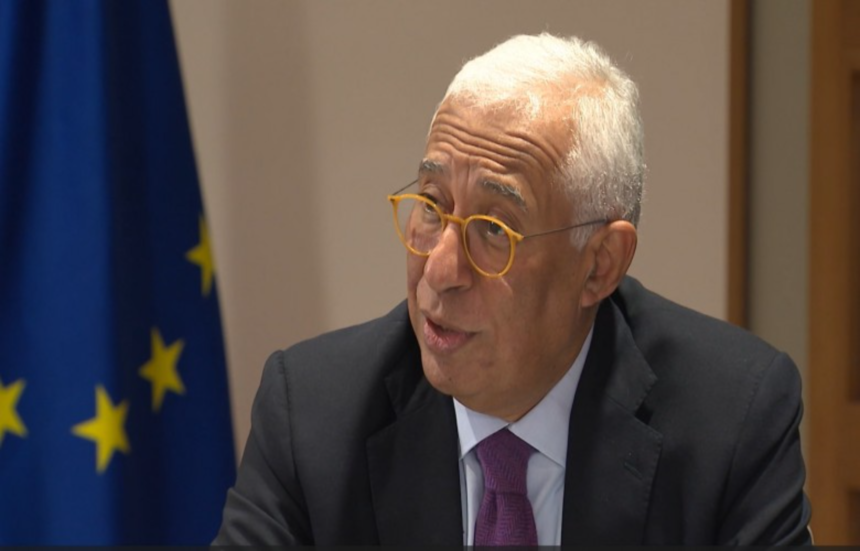The newly appointed President of the European Council, Antonio Costa, acknowledges that, besides the issue of the five non-recognizing countries, the dialogue between Kosovo and Serbia is also becoming an obstacle to the possible treatment of Kosovo’s application for EU candidate status.
Of the six countries in the Western Balkans, only Kosovo does not yet have this status, despite having applied two years ago. The application has never been addressed, with the justification being that there are political implications due to the five non-recognizing countries. In a conversation with journalists from the region, Costa emphasized that things could move forward once there is progress in the dialogue process.
“The most important thing is to continue with the reforms in Kosovo. There must be full implementation of commitments from Kosovo’s side, as this will help. Meanwhile, the fulfillment of obligations from the dialogue between Belgrade and Pristina is essential to create the conditions to move forward,” declared Antonio Costa.
Only two days after taking office, Costa met with the leaders of the Western Balkans. The first summit he will chair, by coincidence, will be with the countries of the region and will take place on December 18.
Antonio Costa promises that enlargement will be a priority during his tenure at the helm of the European Council.
“Enlargement is important because the Western Balkans is part of our European family. We share the same history, the same values, and the same culture with our diversity, and it is also the most important geopolitical investment we can make for our security and prosperity in the future. I hope that during my mandate we can take final steps toward achieving this enlargement,” Costa emphasized.
Kosovo will be represented at this summit by its President, Vjosa Osmani, while Serbia will be represented by its counterpart from Belgrade, Aleksandar Vučić.
This will also be an opportunity for the 27 European Union leaders to reaffirm their commitment that the six countries of the region will have their place in the European family.







